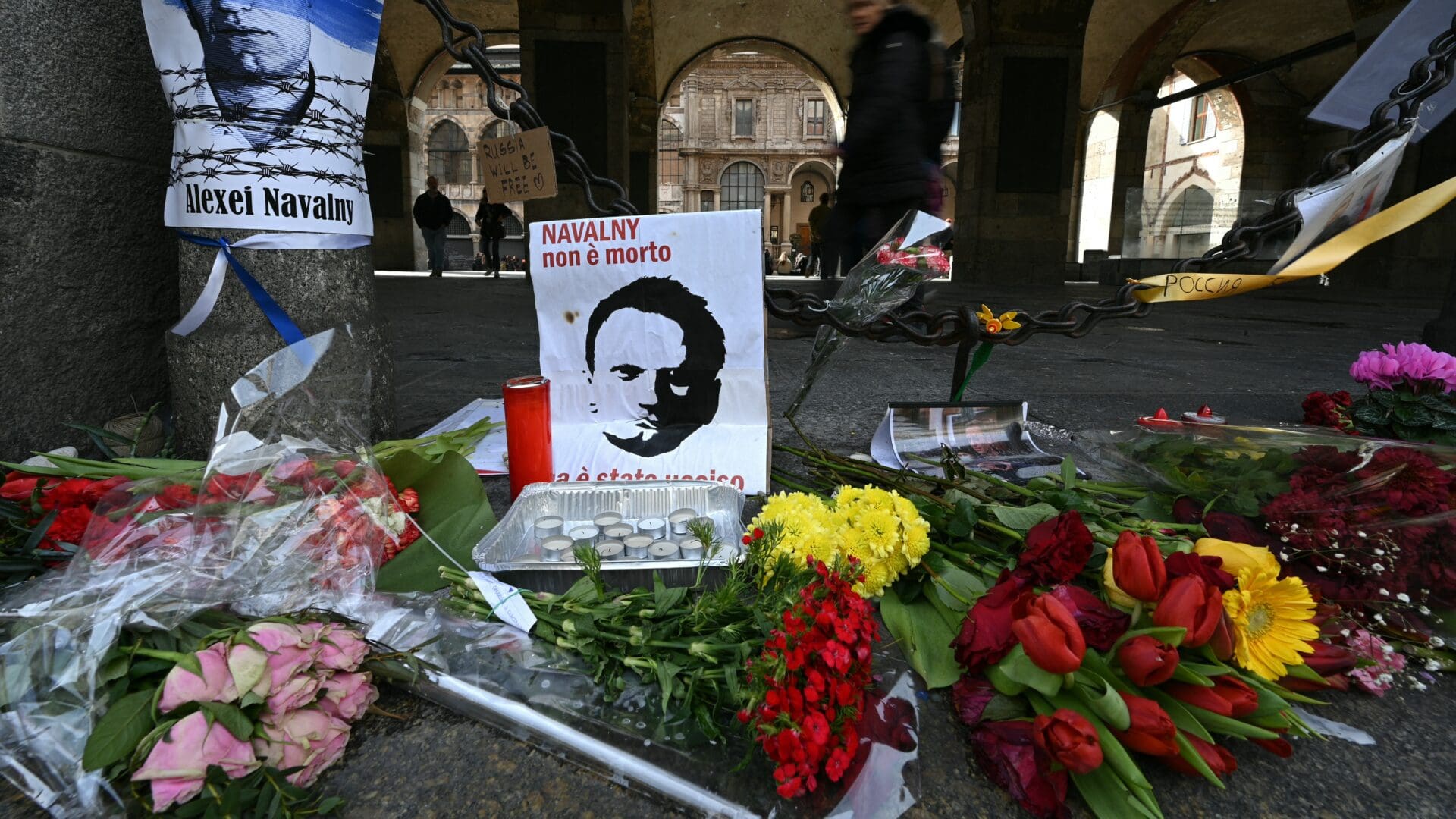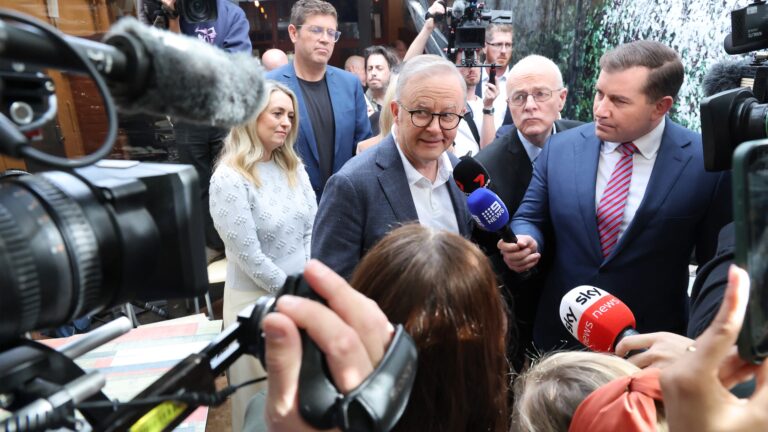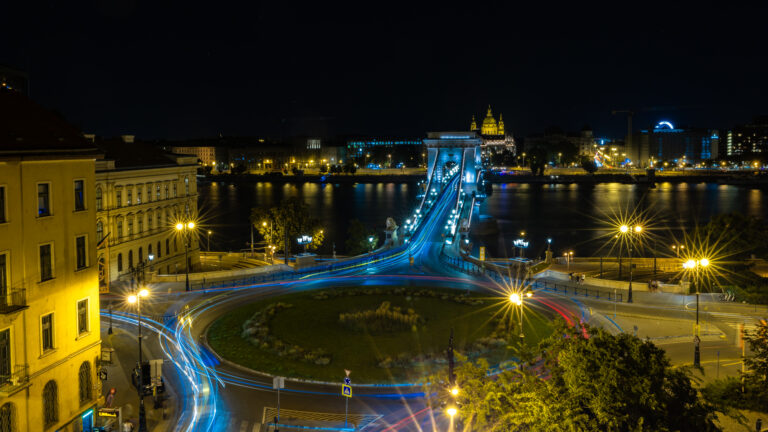The first day of the spring session of the Hungarian parliament, 26 February, was memorable in many ways. Parliament approved the ratification of Sweden’s membership of NATO, which will soon bring to a close a nearly two-year accession process. Additionally, Hungarian lawmakers elected Tamás Sulyok as the country’s next President of the Republic.
Something else also happened that day, however. Following Prime Minister Viktor Orbán’s address preceding the agenda, Bence Tordai, a representative from the opposition party Párbeszéd, urged parliament to honour the memory of the late Russian opposition politician Alexei Navalny, who recently passed away in custody, with a minute of silence. His call was not heeded by the governing party factions, and the opposition, radical right-wing Mi Hazánk. According to Tordai, it was a shame that Fidesz–KDNP had failed to pay tribute, accusing the ruling coalition of being pro-Putin.
In his response, Viktor Orbán expressed gratitude towards the government parties for maintaining composure and refraining from responding to Tordai’s appeal.
‘Chauvinists do not warrant respect in the Hungarian parliament,
and we will not stand in homage to anyone who referred to Georgians as rats during the Georgian-Russian conflict,’ the Prime Minister stated, but added that Alexei Navalny should rest in peace.
Russian opposition leader Alexei Navalny died on 16 February in a prison located in Yamalo-Nenets, situated in Western Siberia, approximately 2000 kilometres east of Moscow. The circumstances surrounding Navalny’s death remain unclear and have rightfully sparked significant outrage worldwide, particularly in the West. While Western nations have accused Russian President Vladimir Putin of orchestrating the assassination of the opposition figure, conclusive evidence supporting these allegations is yet to emerge. On the same day as Bence Tordai’s tribute, Kyrylo Budanov, the head of Ukrainian intelligence, corroborated the Kremlin’s assertion regarding Navalny’s cause of death. ‘I may disappoint you, but we know he died from a blood clot,’ Budanov stated.
This, however, does not imply that the Kremlin bears no responsibility for Navalny’s passing. The deplorable conditions of his incarceration likely exacerbated the formation of the blood clot and the decline in his health. According to POLITICO, Navalny was in the process of being transferred for a potential prisoner exchange at the time of his passing.
Navalny’s Russkiy Mir
However, the events surrounding Navalny’s death are in a way irrelevant for the context of this article. What is of interest is the controversial behaviour of the Hungarian opposition, uncritically emulating the West, and how they trying to score political points exploiting the death of Navalny. It is clear that the distorted portrayal of Navalny in the Western mainstream media significantly shapes the Hungarian discourse on the left, whether the media or the opposition parties.
The prevailing perception among many is that Navalny epitomized the final bastion of democracy in Russia, bravely challenging the authority of Vladimir Putin—an act that ultimately, whether directly or indirectly, led to his death.
Undoubtedly, Navalny’s contributions to the opposition activities in Russia are significant. However, in terms of foreign policy, the perspectives of Navalny and Putin are surprisingly similar—except the former’s more pro-European approach. In fact, in the wake of the opposition leader’s passing, Svidomi released a comprehensive article titled ‘Alexei Navalny: Why do Ukrainians Perceive Him as an Imperialist?’ According to their analysis, the reactions to Navalny’s death included concerns of Russian imperialism, stemming from the opposition politician’s stance on Ukraine, Georgia, and Russia’s neighbouring countries.
Before delving deeper, it’s essential to provide a brief overview of the Navalny remarks that have been criticized by Ukrainians. In 2012, a year preceding the Euromaidan protests, Navalny stated in an interview with a Ukrainian television station that ‘there is no country more related to Russia than Ukraine.’
Additionally, he asserted that Ukrainians and Russians are essentially one and the same people.
This rhetoric may sound familiar to readers as it mirrors arguments employed by Vladimir Putin and other Russian officials, who use this argument to try to relativize the invasion of Ukraine.
In an interview following the annexation of Crimea in 2014, Navalny was asked which country the strategically important region belongs to. His response was:
‘Crimea belongs to the people who live in Crimea… The peninsula was seized in blatant violation of all international norms, but it is now part of Russia and will remain so. It will never again become part of Ukraine soon. Is Crimea a sandwich with sausage to be passed back and forth?’
Navalny has consistently avoided directly addressing whether he would return Crimea to Ukraine if he were President. In 2019, he stated:
‘Of course, the events of 2014 [in Crimea] were illegal. However, we have entered a realm of politics where simple solutions are lacking. There are 2 million people there with Russian passports. It’s already a complex situation. You can’t undo this like you can’t unmix mincemeat. Therefore, there is no straightforward solution to the Crimean issue.’
Central to several of Navalny’s statements was the concept of the ‘Russian World’ (Russkiy mir), a significant aspect of Vladimir Putin’s foreign policy—and arguably the most crucial aspect since the outbreak of the war in Ukraine. The Russian World embodies an expansive Russian political, military, economic, and cultural influence, primarily within the territory of the former Russian Empire and the Soviet Union.
Navalny’s contention, therefore, was not with imperialism per se,
but with how Putin moulded the country’s foreign policy in alignment with imperialistic tendencies. ‘Putin is the enemy of the Russian world,’ Navalny declared in 2018.
Svidomi also accuses Navalny of failing to condemn any alleged Russian war crimes following the outbreak of the conflict: he did not speak out against the massacre at Bucha or the brutal siege of Mariupol.
In addition, the opposition leader did not refrain from making racist and chauvinistic remarks. On the social media platform X (formerly Twitter), a 2014 post referring to Ukrainians as ‘khokhly’ can still be found today. This term is an ethnic slur, a derogatory Russian term used to assert superiority over Ukrainians.
Alexey Navalny on Twitter: "@leonidvolkov окружили хохлов понятно, что не ополченцы. И уничтожать, в случае чего, не ополченцы будут. А это палево на этом этапе / Twitter"
@leonidvolkov окружили хохлов понятно, что не ополченцы. И уничтожать, в случае чего, не ополченцы будут. А это палево на этом этапе
Navalny also spoke reprehensibly about Georgians, as pointed out by Viktor Orbán, who noted Navalny’s characterization of the people of the South Caucasus country as ‘rats’ during Russia’s attack on Georgia in 2008. Furthermore, in the same year, Navalny published a post in which he referred to people from Central Asia as ‘Chuchmeks’—another ethnic slur targeting the Buryats, Kazakhs, and other Asian peoples, used by Russians to assert their superiority.
The Controversial Behaviour of the Hungarian Opposition
Given all of these facts, it is puzzling why the Hungarian opposition, which strongly supports Ukraine and advocates for sending weapons and soldiers to the conflict, paid tribute to Navalny in the Hungarian parliament. The explanation likely lies in the chamber gallery of the National Assembly, where David Pressman, the US ambassador to Hungary, appeared on Monday—as a regular guest, we could say. In the West, particularly in Washington, Navalny is being portrayed as a martyr not primarily because of his views, but rather because he stood up against Putin. US President Joe Biden declared on 16 February that Russia would face unprecedented sanctions over Navalny’s death, a promise which has since been fulfilled, with over 500 entities facing punitive measures. The Hungarian opposition, without much consideration, has aligned itself with this new Western narrative,
seemingly unconcerned with the fact that they have once again undermined their credibility.
This article is not meant to insult Navalny’s memory or his legacy but rather to provide an explanation to those who are perplexed as to why the government parties and Viktor Orbán did not pay tribute to him in parliament. Navalny was neither a saint nor a martyr. His work is undisputed; he has managed to uncover a number of corruption cases in Russia, and it is therefore no coincidence that Putin and the Kremlin saw him as an enemy. Nevertheless, that does not make him a saint or a martyr. It does not mean that he deserves to be saluted, especially in the Hungarian parliament—and it’s likely that our Ukrainian friends share this sentiment.
Related articles:








